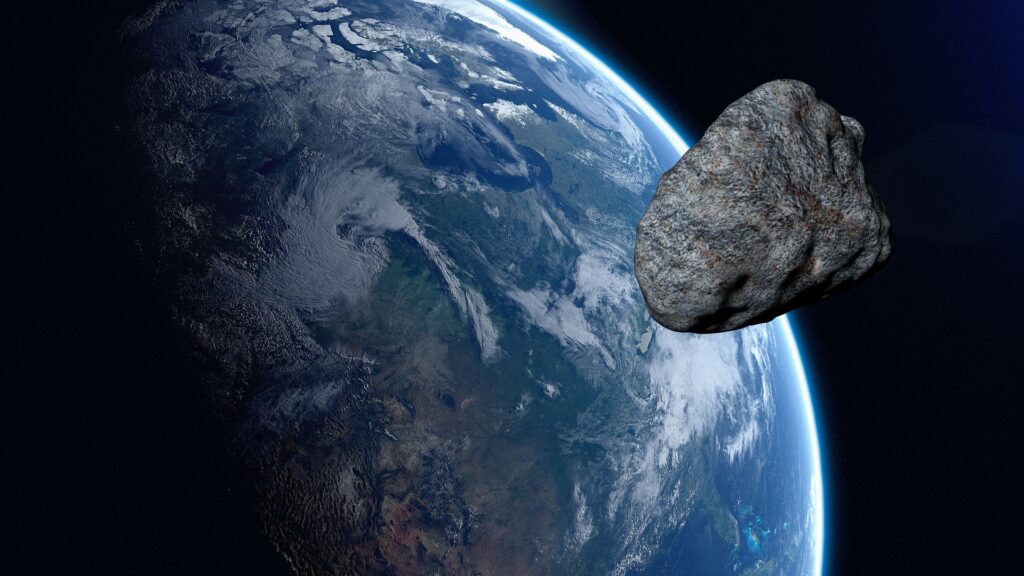If you have been waiting to watch a newly discovered asteroid fly past Earth, you should get your telescopes ready as a space rock is currently heading towards our home planet. Asteroid 2023 BU which measures between 12 and 28 feet wide (3.8 to 8.5 meters) will be coming within less than 3 percent of the average distance between the moon and Earth on January 26 at 4:17 p.m. EST (2117 GMT).
It was first discovered on Saturday (January 21) by astronomer Gennadiy Borisov at the MARGO Observatory in Crimea. Astronomers studied the asteroid even further and revealed that it will reach an altitude of about 2,178 miles (3,506 kilometers) above the Earth’s surface as it conducts its close flyby. Hence, you will stand the chance of observing asteroid 2023 BU from your location, only if you have a powerful telescope.
How you can Watch the Newly Discovered Asteroid Fly Past Earth
If you have a powerful telescope to observe the asteroid, you must ensure that you must complete your setup before 4:17 p.m. EST (2117 GMT) on January 26. But if you don’t have a powerful telescope, you can still watch the asteroid 2023 BU make its close approach to Earth on Virtual Telescope Project YouTube Channel.
Astronomer Gianluca Masi will be conducting a free Livestream of the asteroid flying past earth and you can participate actively by joining the Livestream from the Virtual Telescope Project’s website or from YouTube. The Livestream will commence on January 26 at 2:15 p.m. EST (1915 GMT). Hence, if you do not have a powerful telescope, you should endeavor to join the live stream to see asteroid 2023 BU make its closest approach to our home planet.
Astronomers revealed that the asteroid is still in the Ursa Major Constellation. However, its tiny size makes it difficult for skywatchers to spot the space rock from such a distance. The asteroid 2023 BU dim at magnitude 19.15. Hence, you will need a more sophisticated telescope to see it in its current location.
Astronomer Masi knew that many people will be struggling to spot the asteroid with their small telescopes. Hence, he volunteered to host the live stream to accommodate skywatchers who cannot spot the asteroid using their amateur telescope.
“Asteroid 2023 BU will have an extremely close, but safe, encounter with us, coming [within] less than 10,000 km from the Earth’s center, about 25% of the geostationary satellites’ distance,” says Masi on the project’s website.
What you should know about The Newly Discovered Asteroid 2023 BU
Asteroid 2023 BU is identified by astronomers as an Apollo-type asteroid. The Center for Near Earth Object Studies based at NASA’s Jet Propulsion Laboratory in Southern California reveals that the orbit of the asteroid crosses that of Earth, however, it still spends most of its time in space outside Earth’s path.
Scientists concluded that Asteroid 2023 BU orbits the sun every 425 days and will not make a close flyby to Earth again until December 6, 2036.
Is Asteroid 2023 BU Hazardous?
Astronomers have discovered that over 2,000 hazardous asteroids exist as near-Earth objects. However, the newly discovered asteroid 2023 BU is not classified as one of them. This is because of its small size. Even though asteroid 2023 BU will make an extremely closer approach to Earth on January 26, it will not cause any harm as it is not identified as a potentially hazardous asteroid.
In fact, its small size will make the asteroid break into smaller pieces and burns out in Earth’s Atmosphere, it will eventually impact Earth. But the good news is that asteroid 2023 BU will not impact our home planet. So, we don’t have to be afraid for any reason.
Conclusion
Asteroid 2023 BU’s closest approach to Earth on January 26 may not be noticeable in the smaller telescope. Hence, you will need a more sophisticated telescope to spot the asteroid approaching Earth.
But if you don’t have any, you should opt to join the live stream which will be hosted by a professional astronomer on January 26. We hope that you will share your experience with the asteroid with us at Future Space World.




